 As I’ve mentioned before, Nikola Tesla and Abraham Lincoln have a surprising number of connections between them. I’m currently writing about them in my new ebook called (unsurprisingly) Abraham Lincoln and Nikola Tesla – Connected by Fate, due out this summer on Amazon.com.
As I’ve mentioned before, Nikola Tesla and Abraham Lincoln have a surprising number of connections between them. I’m currently writing about them in my new ebook called (unsurprisingly) Abraham Lincoln and Nikola Tesla – Connected by Fate, due out this summer on Amazon.com.
One unexpected, and somewhat ironic, connection revolved around key players in Lincoln’s assassination, at a club called The Players.
During his most socially-active period Nikola Tesla hung out with some of the more famous personages of the time. Among his friends were Samuel Clemens (aka, Mark Twain), John Muir, Robert Underwood Johnson, Sarah Bernhardt, and others. One of his favorite places to relax was The Players, a social club established to “bring actors into contact with men of different professions such as industrialists, writers and other creative artists.” Nikola Tesla was one of those men.
The Players, by the way, was started by famous Shakesperean actor, Edwin Booth. Yes, that Edwin Booth, older brother of the more infamous John Wilkes Booth, assassin of Abraham Lincoln.
Illegitimate son of the world-renowned actor, Junius Brutus Booth, Edwin went on to establish himself as a superior actor on his own. His two brothers, Junius Jr. and John Wilkes, equally illegitimate, also became actors, though one not as famous and the other more infamous. After the assassination, Edwin disowned John Wilkes and eventually resumed acting, making the title role in Hamlet his signature.
Edwin established The Players in 1888 and died in 1893 just as Nikola Tesla was lighting up the “White City” at the Chicago World’s Fair.
There is much more to the story, of course, and I’ll have that in Abraham Lincoln and Nikola Tesla – Connected by Fate. Watch for it on Amazon later this summer.
David J. Kent has been a scientist for thirty-five years, is an avid science traveler, and an independent Abraham Lincoln historian. He is the author of Tesla: The Wizard of Electricity (now in its 5th printing) and two e-books: Nikola Tesla: Renewable Energy Ahead of Its Time and Abraham Lincoln and Nikola Tesla: Connected by Fate. His book on Thomas Edison is due in Barnes and Noble stores in July 2016.
Follow me by subscribing by email on the home page. And feel free to “Like” my Facebook author’s page and connect on LinkedIn. Share with your friends using the buttons below.












 On
On  On
On  And here on
And here on  An exceptional scholarly treatment. Author Fornieri examines the age-old question of what makes Abraham Lincoln great. His answer lies in the belief that Lincoln was a philosopher statesman, which he defines as being understood in terms of six dimensions of political leadership.
An exceptional scholarly treatment. Author Fornieri examines the age-old question of what makes Abraham Lincoln great. His answer lies in the belief that Lincoln was a philosopher statesman, which he defines as being understood in terms of six dimensions of political leadership.
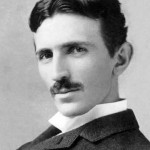
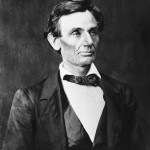 Abraham Lincoln was born in Kentucky in 1809, lived in Indiana and Illinois, and was assassinated in Washington, DC in 1865 without ever having left the country. Nikola Tesla was born in 1856 of Serbian heritage in an Austro-Hungarian military outpost in land now part of Croatia. He moved to the United States decades after Lincoln’s assassination and lived for many years in New York City before dying in 1943. Their lives barely overlapped.
Abraham Lincoln was born in Kentucky in 1809, lived in Indiana and Illinois, and was assassinated in Washington, DC in 1865 without ever having left the country. Nikola Tesla was born in 1856 of Serbian heritage in an Austro-Hungarian military outpost in land now part of Croatia. He moved to the United States decades after Lincoln’s assassination and lived for many years in New York City before dying in 1943. Their lives barely overlapped.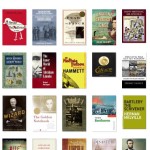 While Thomas Edison slowly comes to life on the pages of my book in progress for Sterling Publishing, we’ve seen a “whole lotta writin’ goin on” (with apologies to
While Thomas Edison slowly comes to life on the pages of my book in progress for Sterling Publishing, we’ve seen a “whole lotta writin’ goin on” (with apologies to 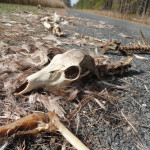 We’ve seen skeletons here on Science Traveler since the last update.
We’ve seen skeletons here on Science Traveler since the last update. 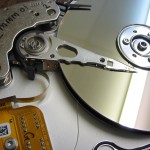 Over on Hot White Snow were two creative writing pieces.
Over on Hot White Snow were two creative writing pieces. 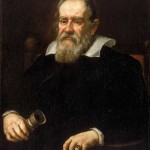 On the serious side, The Dake Page offered a review of the Pulitzer Prize-winning book
On the serious side, The Dake Page offered a review of the Pulitzer Prize-winning book 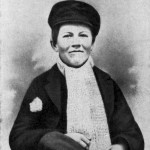 Now back to Thomas Edison. Did you know that as a child he was actually called “Little Al?” Or that he was a teenage “news butch” on a train (not quite a teenage werewolf in Paris)? Or that his deafness started at an early age? Stay tuned as Little Al grows up into “The Wizard of Menlo Park” (even though he wasn’t in Menlo Park very long).
Now back to Thomas Edison. Did you know that as a child he was actually called “Little Al?” Or that he was a teenage “news butch” on a train (not quite a teenage werewolf in Paris)? Or that his deafness started at an early age? Stay tuned as Little Al grows up into “The Wizard of Menlo Park” (even though he wasn’t in Menlo Park very long).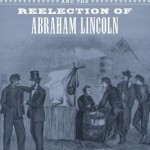
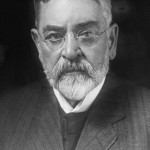 Yes, you read that right; a Booth saved a Lincoln’s life. In my e-book, Abraham Lincoln and Nikola Tesla: Connected by Fate, I’ve been amazed at how many interesting connections there are between the two men. There are two that relate Tesla to Lincoln through Robert Todd Lincoln.
Yes, you read that right; a Booth saved a Lincoln’s life. In my e-book, Abraham Lincoln and Nikola Tesla: Connected by Fate, I’ve been amazed at how many interesting connections there are between the two men. There are two that relate Tesla to Lincoln through Robert Todd Lincoln.






